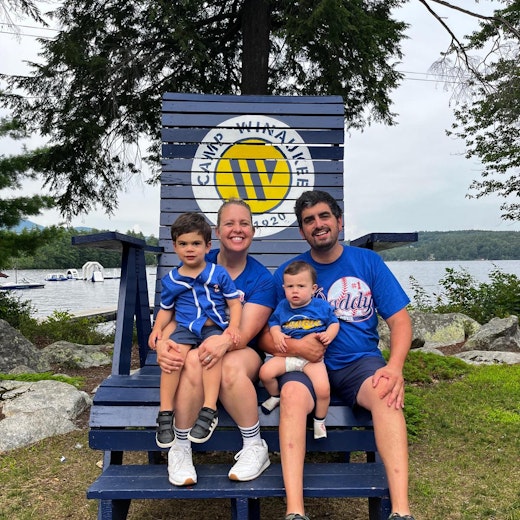The Developmental Benefits of a Summer at Camp Winaukee for Young Boys
November 19, 2024
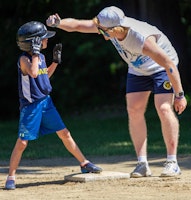
Summer camps have long been considered a critical developmental experience for children, offering a structured environment conducive to personal growth, skill acquisition, and social bonding. Camp Winaukee, a traditional boys’ camp located on the shores of Lake Winnipesaukee, provides an immersive program designed to foster independence, social connections, physical development, and emotional resilience. Let’s explore the developmental benefits of attending Camp Winaukee for the full seven-week summer, particularly for 8-year-old boys, focusing on the unique advantages of an extended camp experience.
Child development theory emphasizes the importance of environments that promote autonomy, social interaction, and exposure to new challenges (Piaget, 1952; Vygotsky, 1978). For 8-year-old boys, this is a critical stage in their cognitive, social, and emotional development. Summer camp, with its blend of structured activities and communal living, provides an optimal setting for these developmental needs. However, the duration of the camp experience plays a pivotal role in determining its impact. The longer the stay at Camp Winaukee, the more benefits there are. More time allows for sustained engagement, fostering a deeper sense of independence, stronger social bonds, and greater mastery of skills than shorter camp sessions of only one or two weeks.
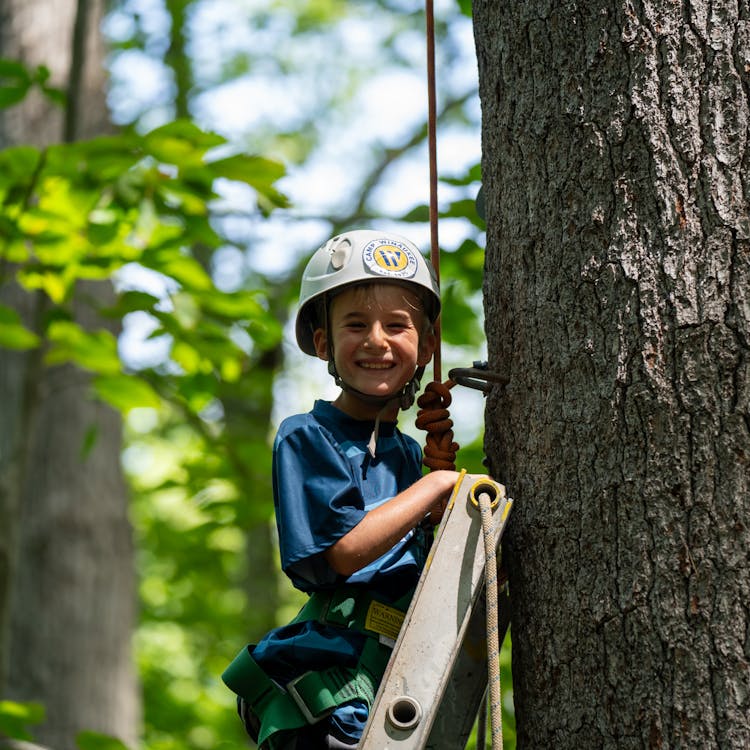
Independence and Autonomy
Research suggests that extended periods away from home can enhance a child’s sense of independence and self-reliance (Larson & Verma, 1999). For an 8-year-old boy, the multi-week structure of Camp Winaukee allows sufficient time to navigate daily responsibilities, such as managing personal belongings, adhering to a schedule, and making decisions autonomously. While shorter camp sessions may introduce these concepts, a full summer immersion enables children to internalize these lessons, fostering long-term behavioral changes. The absence of parental intervention over a prolonged period provides an ideal setting for a child to develop problem-solving skills and personal accountability (Bender, 2009).
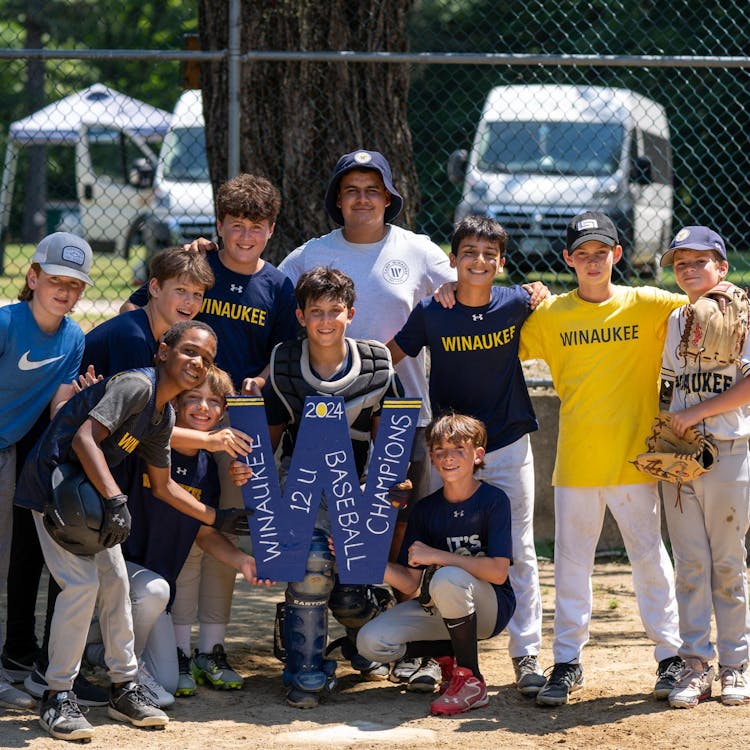
Socialization and Peer Relationships
Social relationships during middle childhood play a fundamental role in shaping a child’s social competence and emotional health (Hartup & Stevens, 1997). Camp Winaukee’s program facilitates deeper social connections among campers, as extended time allows for repeated interactions and the development of meaningful friendships. Unlike one and two-week camp experiences, which may limit the depth of social bonding, the full summer enables boys to navigate the complexities of friendship—such as conflict resolution, collaboration, and empathy—over a sustained period. Research supports the notion that longer durations in group settings enhance peer interaction skills and increase social adaptability (Simpkins et al., 2012).
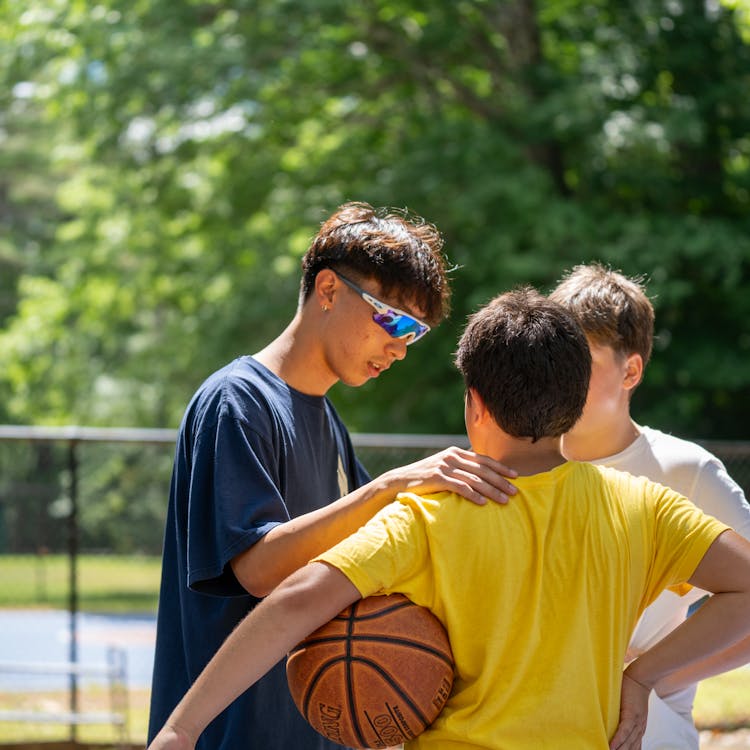
Emotional Resilience and Confidence Building
Extended exposure to new environments and challenges has been linked to the development of emotional resilience in children (Ungar, 2005). Over the course of their time with us, campers at Winaukee encounter a variety of experiences that push them outside their comfort zones, such as participating in team sports, performing in front of peers, or embarking on outdoor adventures. The cumulative effect of these challenges, coupled with supportive peer and staff relationships, fosters emotional resilience and builds confidence. An extended stay allows boys to experience failure and success in a balanced way, reinforcing the idea that growth comes from perseverance and effort (Dweck, 2006).
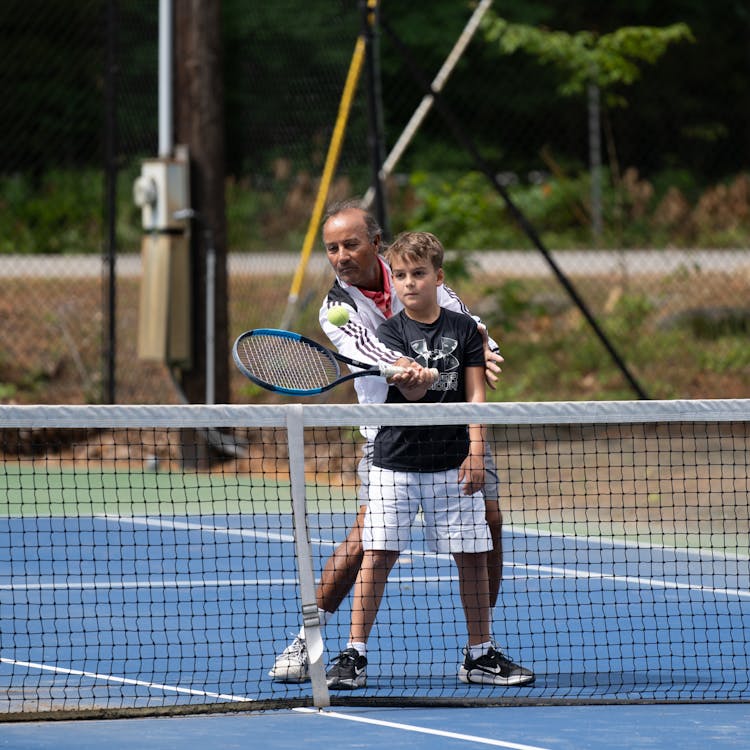
Physical and Skill Development
Camp Winaukee offers a wide array of activities, from water sports to land sports and arts programs, all of which contribute to a child’s physical and cognitive development. A multi-week stay provides the time necessary to practice and master these skills. According to the principles of skill acquisition, the repetition and sustained engagement offered by a longer camp duration lead to more significant improvements in both motor skills and cognitive processing (Ericsson, Krampe, & Tesch-Römer, 1993). For an 8-year-old, a full summer at camp ensures ample time for skill development, whether in athletic pursuits such as swimming or creative endeavors such as arts and crafts.

Screen-Free Environment and Connection with Nature
The modern childhood experience is increasingly dominated by screen time and digital interactions (Anderson & Subrahmanyam, 2017). Camp Winaukee’s screen-free environment offers a valuable counterbalance, promoting face-to-face communication and active engagement with the natural world. Extended time in nature has been shown to reduce stress, enhance mood, and improve cognitive functioning in children (Faber Taylor & Kuo, 2009). An extended session at Winaukee allows campers to develop a deep connection to the outdoors, fostering a sense of environmental stewardship and enhancing mental well-being.
In conclusion, the Camp Winaukee summer program provides a comprehensive and deeply impactful experience for young boys. The extended duration allows for significant development in independence, socialization, skill acquisition, emotional resilience, and connection to nature. While shorter camp sessions offer some benefits, they do not provide the same opportunity for sustained personal growth. The immersive, prolonged environment at Camp Winaukee ensures that children leave camp with newfound confidence, lifelong friendships, and enhanced personal skills that will benefit them far beyond the summer months.
References
Anderson, C. A., & Subrahmanyam, K. (2017). Digital media and screen time: Implications for child development. Child Development Perspectives, 11(1), 31-36.
Bender, S. L. (2009). Encouraging independence in middle childhood: Family and environmental factors. Journal of Child and Family Studies, 18(4), 452-461.
Dweck, C. S. (2006). Mindset: The new psychology of success. Random House.
Ericsson, K. A., Krampe, R. T., & Tesch-Römer, C. (1993). The role of deliberate practice in the acquisition of expert performance. Psychological Review, 100(3), 363-406.
Faber Taylor, A., & Kuo, F. E. (2009). Children with attention deficits concentrate better after a walk in the park. Journal of Attention Disorders, 12(5), 402-409.
Hartup, W. W., & Stevens, N. (1997). Friendships and adaptation in the life course. Psychological Bulletin, 121(3), 355-370.
Larson, R., & Verma, S. (1999). How children and adolescents spend time across the world: Work, play, and developmental opportunities. Psychological Bulletin, 125(6), 701-736.
Simpkins, S. D., Eccles, J. S., & Becnel, J. N. (2012). The role of extracurricular activities in adolescent development. Child Development, 83(3), 982-997.
Ungar, M. (2005). Pathways to resilience among children in child welfare, corrections, mental health and educational settings: Navigation and negotiation. Child and Youth Care Forum, 34(6), 423-444.
Vygotsky, L. S. (1978). Mind in society: The development of higher psychological processes. Harvard University Press.
